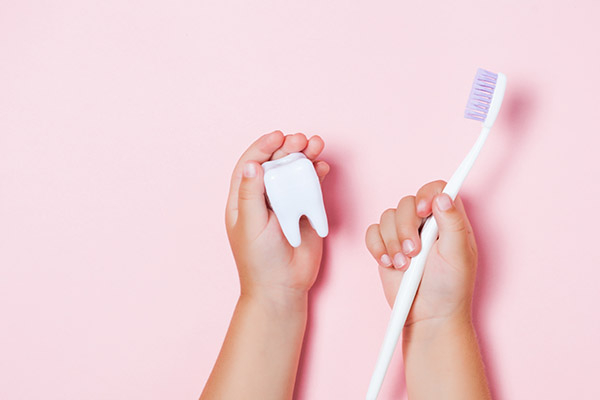 Falls, sports-related injuries, and scuffles are the most prevalent causes of pediatric dental injuries in children, necessitating a visit to the pediatric dentist. Also, when a child falls with an object in their mouth, they might sustain oral trauma. When your child's oral health is in jeopardy, the dentist can help.
Falls, sports-related injuries, and scuffles are the most prevalent causes of pediatric dental injuries in children, necessitating a visit to the pediatric dentist. Also, when a child falls with an object in their mouth, they might sustain oral trauma. When your child's oral health is in jeopardy, the dentist can help.
Common pediatric dental tooth injuries
Dental injuries require different treatments depending on the child’s age, the nature of the injury, and the affected tooth (whether it is a permanent or baby tooth). Common oral injuries that occur to children include the following:
Dislocated or loose primary tooth
Dislocation of the front teeth is the most common damage to the primary teeth. The treatment for these injuries focuses on preventing damage to the adult teeth in the future. A loose primary tooth could be kept in its position or extracted if it negatively affects the bite. Most of the time, a loose tooth will heal on its own. If there is a risk of the tooth falling out or causing the child to choke, injured teeth that are very loose may need to be removed.
Since there is a risk of damage to the permanent tooth, it will not be placed back into the gums if the primary tooth is completely knocked out. The loss of a primary tooth in the front does not usually affect the child's speech or the permanent tooth's position.
Broken tooth
If a child's primary tooth is broken, parents should take them to the dental office right away. The dentist will check to see if the nerves or blood vessels in the tooth have been injured. Smoothing the tooth's rough edges, fixing it with a tooth-colored resin material, keeping the tooth in situ, or extracting it are all options for treatment.
Knocked-out permanent tooth
A knocked-out permanent tooth is a dental emergency that requires immediate attention. The tooth should be returned to its socket as quickly as possible, preferably within 15 minutes but no longer than one hour (it should ideally be preserved in cold milk). Most teeth that are restored in the socket within five minutes have a higher rate of survival.
Loose permanent tooth
A loose permanent tooth is a pediatric dental injury that needs to be treated right away. The tooth may usually be restored to its proper place and watched over time. However, anesthesia and stitches or splints may be required to preserve the tooth in its socket. Children with loose permanent teeth should be evaluated and treated by a pediatric dentist who can treat dental trauma in children. These teeth should be checked by a dentist regularly because root canal treatment may be necessary, even years after the injury.
Mouth injuries
The dentist will evaluate and handle the injury based on how it occurred, which regions were affected, and the degree of the injury. Stitches are not usually needed for small wounds or tears inside the mouth. Tears in the frenulum (the skin flap beneath the upper lip) also rarely need stitches to heal. Stitches may be required for large wounds, especially those around the tongue’s tip or between the teeth. The same applies to injuries that affect the outer part of the lips and the skin.
In conclusion
Contact the pediatric dentist immediately if your child suffers a tooth injury. In case of an emergency, timing is essential. The dental professional will examine the child and recommend the appropriate treatment.
Request an appointment or call Hudson Valley Pediatric Dentistry at 845-363-4177 for an appointment in our Middletown office.
Recent Posts
Curious about how often you should take your child to see a pediatric dentist? Read on to learn more. It is a common misconception that small children do not need to see a dentist since their baby teeth will fall out eventually. However, a number of difficulties may arise with a person's dental health at…
Cavities, or dental caries, can affect children just as they do adults, and early cavity treatment for kids is crucial to prevent further dental problems.The process of cavity treatment for kids is tailored to their unique needs and comfort. In this article, we will walk patients through the typical steps of cavity treatment for children,…
Are you wondering how often your child should see a pediatric dentist? Both children and adults should visit the dentist at least twice a year to ensure that their teeth and gums are healthy. However, seeing a pediatric dentist more often than that can be helpful to a growing child.A child’s mouth undergoes many changes…


